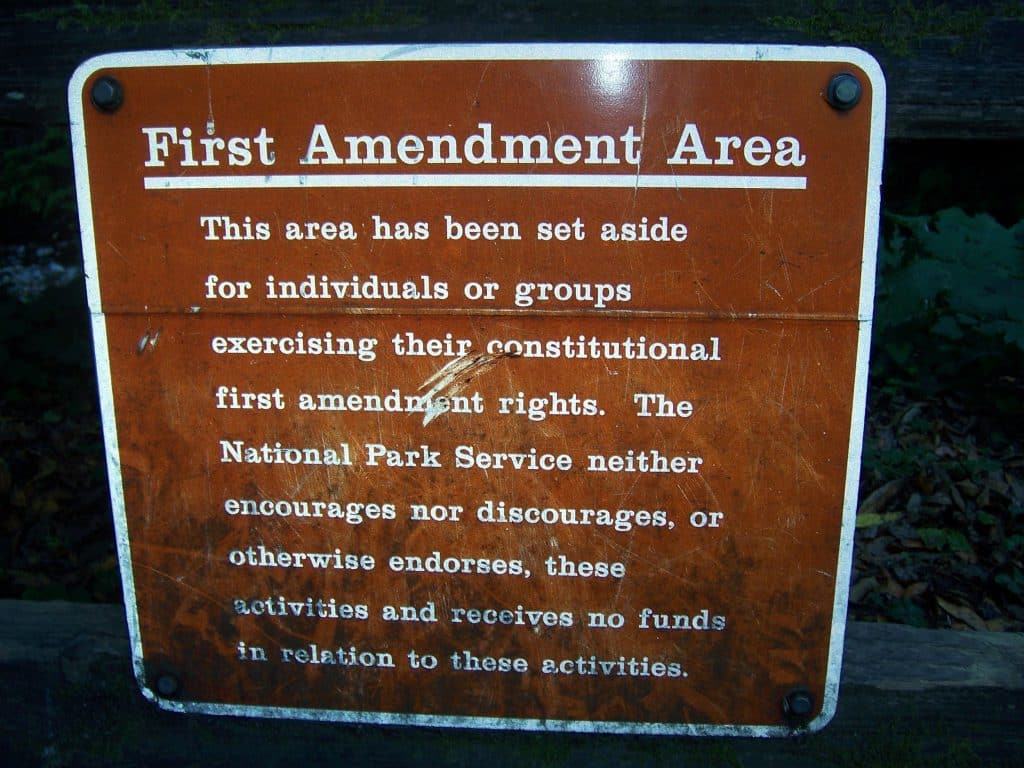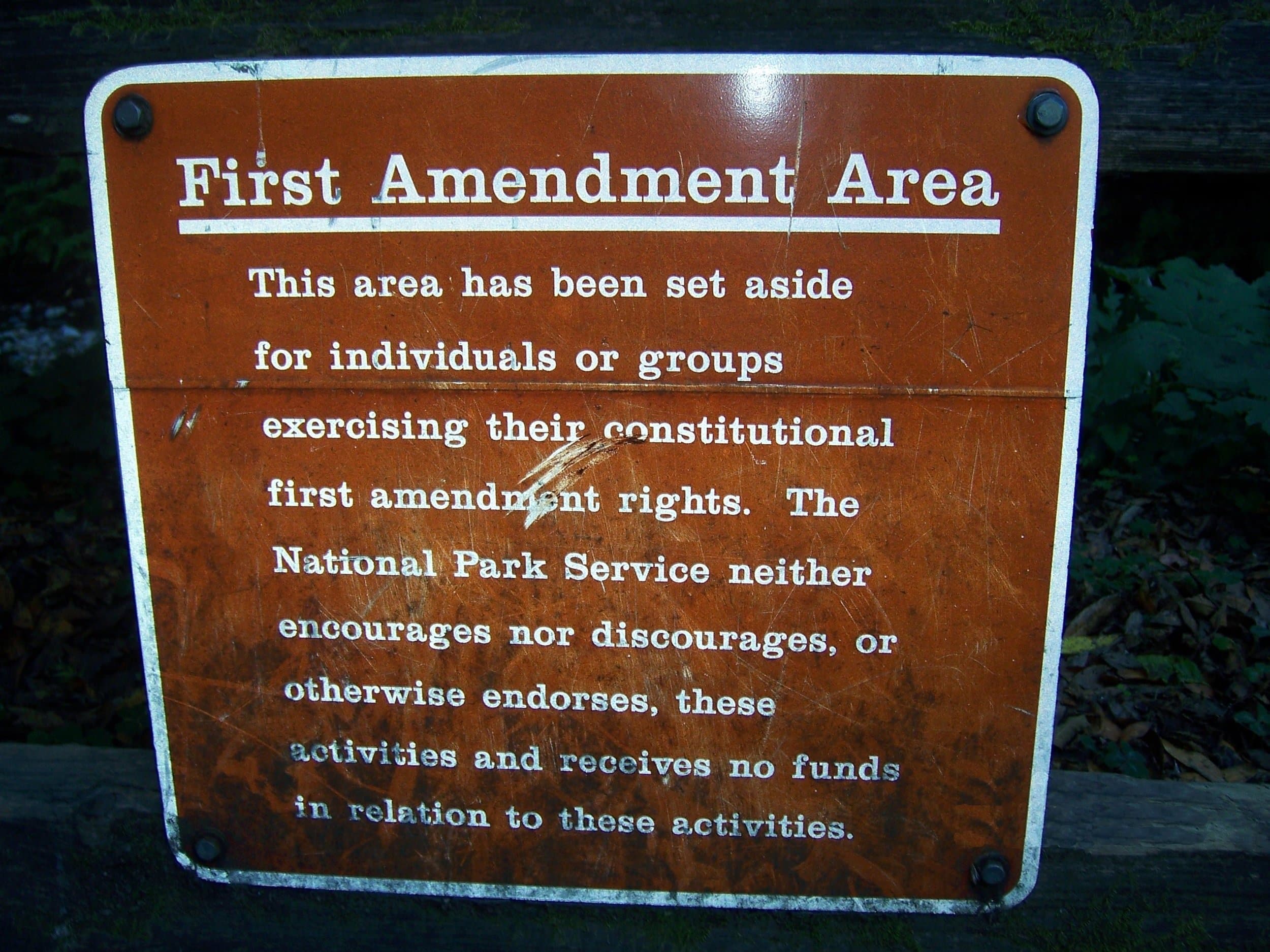
OPINION: The necessary boundaries of free speech
Christian Segers, Assistant Editor
Photo: Brandt Luke Zorn. Used under the creative commons 3.0 license.
Free speech, one of America’s greatest and most defining of privileges, has the capability of overextending its bounds when blended with maliciousness or the incitement of anger.
The right to “peacefully assemble” has remained a distinctive right of every American citizen since the nation’s inception. The ability forAmerican’s to come together and stand for a cause separates America from the likes of other countries. It is protected by the First Amendment to the Constitution, which states, “…there is no prohibition on the free exercise of religion, abridging the freedom of speech…” However, the pledge from our government to withhold violent force from meeting protesters, does not give merit to the violent dialogue of recent protesters.
Unfortunately, society has reached a point where people would rather incite others to rage, rather than engage in conversational empathy. As citizens of a free nation, people should be mindful to use the free speech they have been inherently blessed with as both a tool and as the peacemaker of choice.
The city of Charlotte, N.C. serves as an example.
Upon the death of Keith Scott, an African American who was fatally shot by a police officer, BLM (Black Lives Matter) protesters converged on Charlotte — almost immediately turning their movement into a cesspool for the destruction of businesses and public structures.
A city that experienced protests long before Charlotte, was Ferguson, Mo. An unarmed African American by the name of Michael Brown who had been identified by police as a thief, was seen walking down a Ferguson street when confronted by an officer of the law. Words were exchanged, the encounter became physical and the firing of multiple gunshots ensued. What actually happened depends on which witness was asked, according to The New York Times. Although the officer has since been cleared of all charges, riots and mass looting erupted within the city in a matter of 24 hours, after the death of Brown.
Ferguson protesters continued rioting and protesting for nearly a week after the shooting. Instead of unifying with a purpose and a direct cause, protesters acted out of a voice of dissension and advocacy of police force dismantlement.
In Portland, one BLM speaker advocated for the slaughter of the police force by saying, “If they go about their burden of whatever they said you’re doing, you pull your pistol out and you [expletive] bust that. You pull your pistol out and you bust that! Because at the end of the day, it’s going to be you against them.”
Protesters are justified in assembling, as it is their God given and Constitutionally protected right, but there is no place for brutality against those sworn to serve and protect.
In short, free speech is a bedrock right for all Americans. However, when used to drum up anger and transition into violent activity, freedom of speech switches from foundational to hateful. When this merging occurs, the line between freedom and legally threatening words becomes blurred.
The views and opinions expressed in this editorial are solely those of the original author(s) These views and opinions do not necessarily represent those of The Vision website or North Greenville University.

